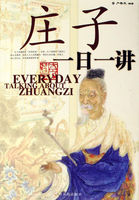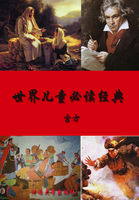Some explanation appears to be necessary as to the publication of the three articles "Mill on Government," "Westminster Reviewer's Defence of Mill" and "Utilitarian Theory of Government."In 1828 Mr James Mill, the author of the History of British India, reprinted some essays which he had contributed to the Supplement to the Encyclopaedia Britannica; and among these was an Essay on Government.The method of inquiry and reasoning adopted in this essay appeared to Macaulay to be essentially wrong.He entertained a very strong conviction that the only sound foundation for a theory of Government must be laid in careful and copious historical induction; and he believed that Mr Mill's work rested upon a vicious reasoning a priori.Upon this point he felt the more earnestly, owing to his own passion for historical research, and to his devout admiration of Bacon, whose works he was at that time studying with intense attention.There can, however, be little doubt that he was also provoked by the pretensions of some members of a sect which then commonly went by the name of Benthamites, or Utilitarians.This sect included many of his contemporaries, who had quitted Cambridge at about the same time with him.It had succeeded, in some measure, to the sect of the Byronians, whom he has described in the review of Moore's Life of Lord Byron, who discarded their neckcloths, and fixed little models of skulls on the sand-glasses by which they regulated the boiling of their eggs for breakfast.The members of these sects, and of many others that have succeeded, have probably long ago learned to smile at the temporary humours.But Macaulay, himself a sincere admirer of Bentham, was irritated by what he considered the unwarranted tone assumed by several of the class of Utilitarians."We apprehend," he said, "that many of them are persons who, having read little or nothing, are delighted to be rescued from the sense of their own inferiority by some teacher who assures them that the studies which they have neglected are of no value, puts five or six phrases into their mouths, lends them an odd number of the Westminster Review, and in a month transforms them into philosophers;" and he spoke of them as "smatterers, whose attainments just suffice to elevate them from the insignificance of dunces to the dignity of bores, and to spread dismay among their pious aunts and grand mothers."The sect, of course, like other sects, comprehended some pretenders, and these the most arrogant and intolerant among its members.He, however, went so far as to apply the following language to the majority:--"As to the greater part of the sect, it is, we apprehend, of little consequence what they study or under whom.It would be more amusing, to be sure, and more reputable, if they would take up the old republican cant and declaim about Brutus and Timoleon, the duty of killing tyrants and the blessedness of dying for liberty.But, on the whole, they might have chosen worse.They may as well be Utilitarians as jockeys or dandies.And, though quibbling about self-interest and motives, and objects of desire, and the greatest happiness of the greatest number, is but a poor employment for a grown man, it certainly hurts the health less than hard drinking and the fortune less than high play; it is not much more laughable than phrenology, and is immeasurably more humane than cock-fighting."Macaulay inserted in the Edinburgh Review of March, 1829, an article upon Mr Mill's Essay.He attacked the method with much vehemence; and, to the end of his life, he never saw any ground for believing that in this he had gone too far.But before long he felt that he had not spoken of the author of the Essay with the respect due to so eminent a man.In 1833, he described Mr mill, during the debate on the India Bill of that year, as a "gentleman extremely well acquainted with the affairs of our Eastern Empire, a most valuable servant of the Company, and the author of a history of India, which, though certainly not free from faults, is, I think, on the whole, the greatest historical work which has appeared in our language since that of Gibbon."Almost immediately upon the appearance of the article in the Edinburgh Review, an answer was published in the Westminster Review.It was untruly attributed, in the newspapers of the day, to Mr Bentham himself.Macaulay's answer to this appeared in the Edinburgh Review, June, 1829.He wrote the answer under the belief that he was answering Mr Bentham, and was undeceived in time only to add the postscript.The author of the article in the Westminster Review had not perceived that the question raised was not as to the truth or falsehood of the result at which Mr Mill had arrived, but as to the soundness or unsoundness of the method which he pursued; a misunderstanding at which Macaulay, while he supposed the article to be the work of Mr Bentham, expressed much surprise.The controversy soon became principally a dispute as to the theory which was commonly known by the name of The Greatest Happiness Principle.Another article in the Westminster Review followed; and a surrejoinder by Macaulay in the Edinburgh Review of October, 1829.Macaulay was irritated at what he conceived to be either extreme dullness or gross unfairness on the part of his unknown antagonist, and struck as hard as he could; and he struck very hard indeed.
同类推荐
热门推荐
世界儿童故事经典:影响你一生的100个励志故事
古今中外丰富多彩的故事是世界各国社会和生活的结晶,是高度艺术化的精神产品,具有永久的闪光魅力,非常集中、非常形象,是中小学生了解世界和社会的窗口,是走向世界、观摩社会的最佳捷径。这些著名故事,伴随着世界各国一代又一代的青少年茁壮成长,具有广泛而深远的影响。我们青少年只要带着有趣的欣赏的心态阅读这些美丽的故事,便非常有利于培养积极的和健康向上的心理、性格、思维和修养,便有利于了解世界各国的社会和生活,并能不断提高语言表达和社会交往的才能。















